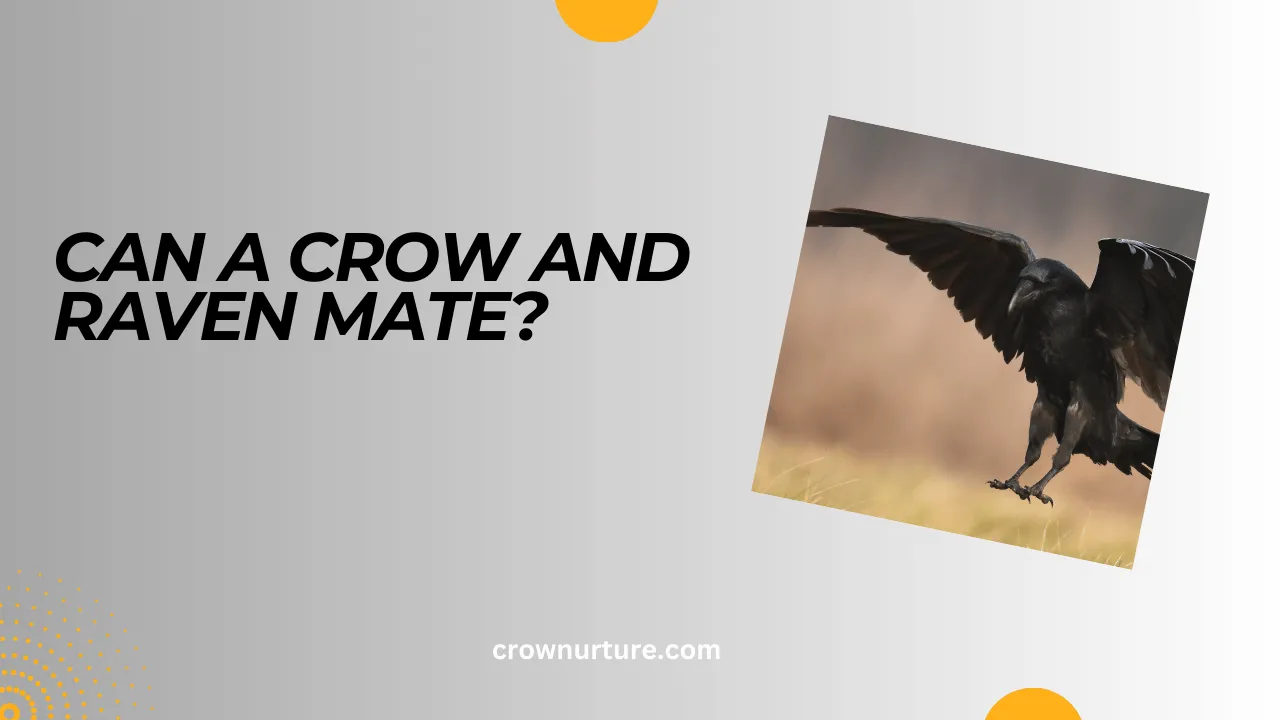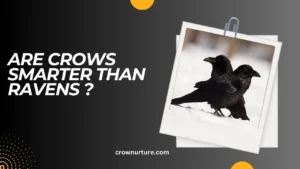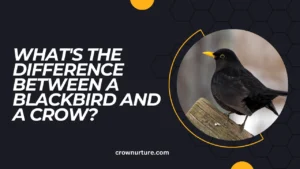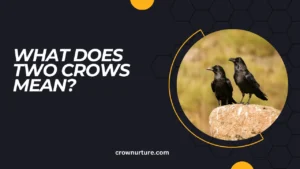Crows and ravens are often mistaken for one another, thanks to their striking similarities in appearance and behavior. But these two birds, while closely related, are distinct species with their own unique traits.
This has sparked a fascinating question among bird enthusiasts and scientists alike: Can a crow and a raven mate? Understanding the answer requires exploring more than just appearances.
It dives into genetics, behavior, and ecological interactions that shape the lives of these highly intelligent birds. What makes crows and ravens so different despite being in the same family? Can their similarities bridge the gap enough for interbreeding to occur?
This article uncovers the scientific factors behind this intriguing question. From their classification in the Corvidae family to the barriers that separate them, we’ll explore what modern science says about the possibility of a crow and a raven hybrid. Keep reading to unravel the mysteries of these birds and their potential for genetic crossover.
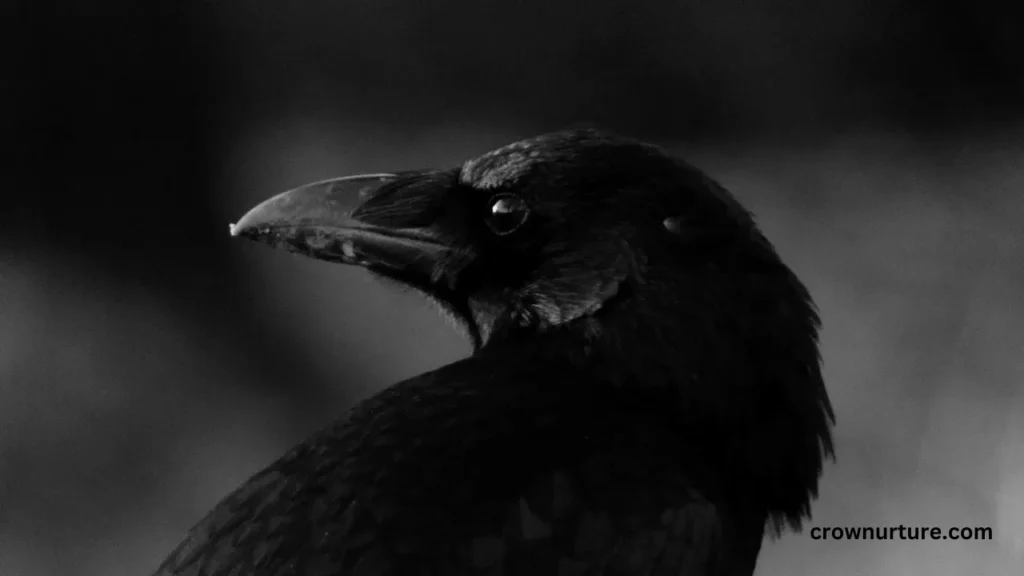
Contents
- 1 1. Taxonomic Classification
- 2 2. Reproductive Behavior
- 3 3. Genetic Compatibility
- 4 4. Ecological Factors
- 5 5. Scientific Observations and Anecdotes
- 6 Conclusion
- 7 FAQs
- 7.1 1. Can crows and ravens interbreed?
- 7.2 2. Do crows and ravens ever interact in the wild?
- 7.3 3. Has a crow-raven hybrid ever been documented?
- 7.4 4. What are the main differences between crows and ravens?
- 7.5 5. Are crows and ravens part of the same genus?
- 7.6 6. Do crows and ravens have similar nesting habits?
1. Taxonomic Classification
Both crows and ravens belong to the Corvidae family, a group known for its intelligent members. This family includes birds like magpies, jays, and nutcrackers, all celebrated for their problem-solving skills and adaptability.
Despite their family ties, crows and ravens differ at the genus level. Crows typically belong to the genus Corvus corone, while ravens are categorized as Corvus corax. These distinctions reflect differences in size, vocalization, and behavior that set them apart.
Within their respective genera, both crows and ravens have diverse species. These differences, while subtle to the untrained eye, play a significant role in determining their potential compatibility for mating.
2. Reproductive Behavior
Both crows and ravens are known for their monogamous mating systems, forming strong pair bonds that can last for years or even a lifetime. This social behavior underscores their intelligence and ability to navigate complex relationships.
Their breeding seasons, however, can vary depending on the species and geographical location. While there may be some overlap in timing, these differences make synchronized mating between the two species unlikely.
Additionally, their nesting behaviors differ slightly. Ravens prefer isolated, high perches like cliffs or tall trees, while crows often choose urban or suburban environments, building nests in more accessible areas. These preferences create natural barriers to interbreeding.
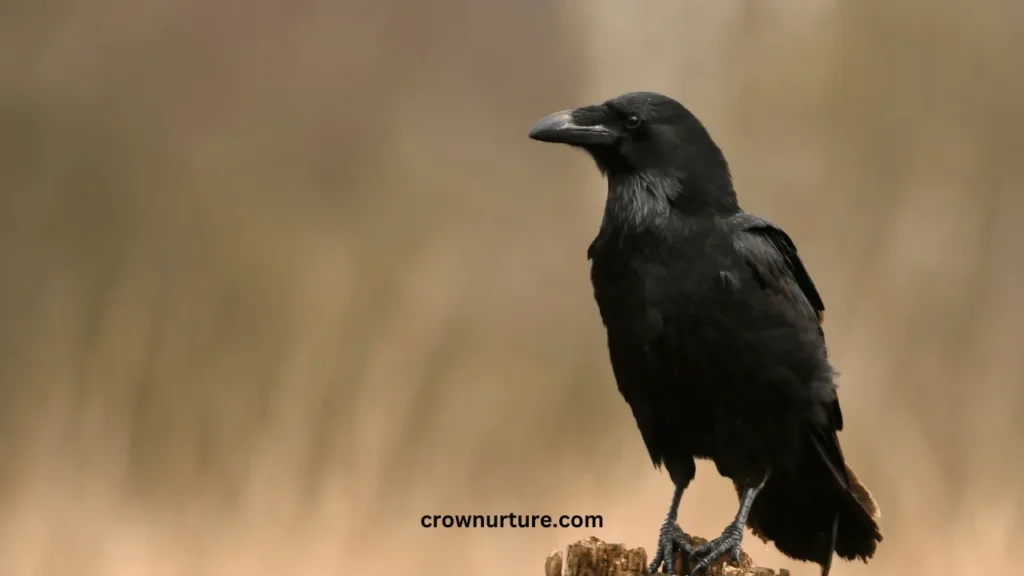
3. Genetic Compatibility
For hybridization to occur, two species must have compatible chromosomes. While crows and ravens share a close genetic relationship, chromosomal differences often act as a barrier, preventing successful reproduction.
Even if hybridization were possible, genetic barriers could result in sterile or nonviable offspring, as seen in other bird species with limited compatibility. This makes it unlikely that any potential hybrids would thrive or reproduce.
Moreover, there’s no scientific evidence of a successful crow-raven hybrid in the wild or captivity, further suggesting that genetic incompatibility plays a crucial role in keeping these species separate.
4. Ecological Factors
While crows and ravens share overlapping habitats, their preferences for specific environments differ. Crows are highly adaptable, thriving in urban, rural, and forested areas, while ravens prefer more secluded, wilderness settings.
Competition and territorial behavior also limit their interactions. Both species are known to defend their resources aggressively, reducing the chances of meaningful social interactions that could lead to mating.
Additionally, their social dynamics differ. Ravens often form smaller, more isolated groups, while crows are highly social, gathering in large flocks. These behaviors further decrease the likelihood of hybridization.
5. Scientific Observations and Anecdotes
Despite the biological barriers, some anecdotal evidence has emerged of potential crow-raven hybrids. However, these reports are largely unverified, and no scientific studies have conclusively documented such an occurrence.
Birdwatchers and researchers often misidentify birds with unusual plumage or behaviors as hybrids. These instances highlight the need for genetic testing and scientific validation to confirm any claims of crossbreeding.
The lack of verifiable evidence suggests that while crows and ravens may occasionally interact, true hybridization remains improbable under natural conditions.
Conclusion
Crows and ravens are closely related but remain distinct species due to genetic, behavioral, and ecological barriers. While their shared family ties may raise questions about the possibility of hybridization, the scientific evidence points to significant challenges that make this unlikely.
From differences in their breeding habits and nesting preferences to their unique genetic makeup, these factors ensure that crows and ravens retain their individuality. Though they may share habitats and occasionally interact, they remain two fascinating and separate members of the Corvidae family.
As our understanding of genetics and avian behavior continues to grow, the potential for unexpected discoveries remains. Until then, the question of crow-raven hybrids remains a captivating topic for bird enthusiasts and researchers alike.
FAQs
1. Can crows and ravens interbreed?
No, crows and ravens are genetically distinct, making interbreeding unlikely under natural conditions.
2. Do crows and ravens ever interact in the wild?
Yes, crows and ravens may share overlapping habitats and occasionally interact, but they typically avoid close contact due to territorial behavior.
3. Has a crow-raven hybrid ever been documented?
There are anecdotal reports of potential hybrids, but no scientific evidence has confirmed their existence.
4. What are the main differences between crows and ravens?
Crows are smaller, with a higher-pitched call, while ravens are larger, with a deeper voice and more solitary habits.
5. Are crows and ravens part of the same genus?
No, while both belong to the Corvidae family, crows are in the genus Corvus corone, and ravens are in the genus Corvus corax.
6. Do crows and ravens have similar nesting habits?
Not entirely. Crows prefer urban and suburban environments, while ravens often nest in remote, high-perch locations

